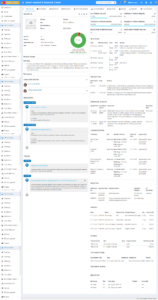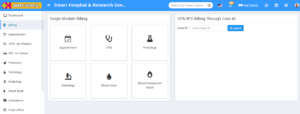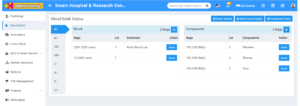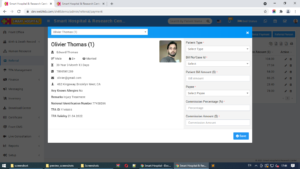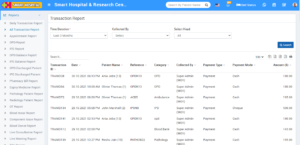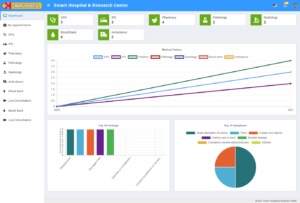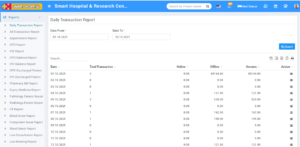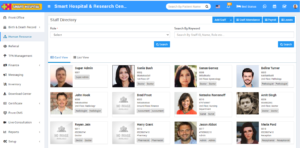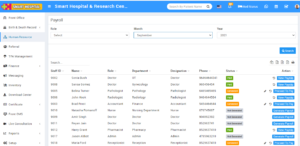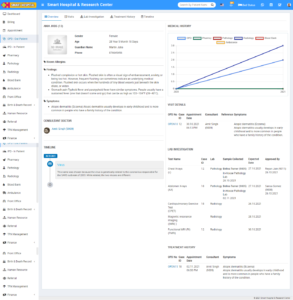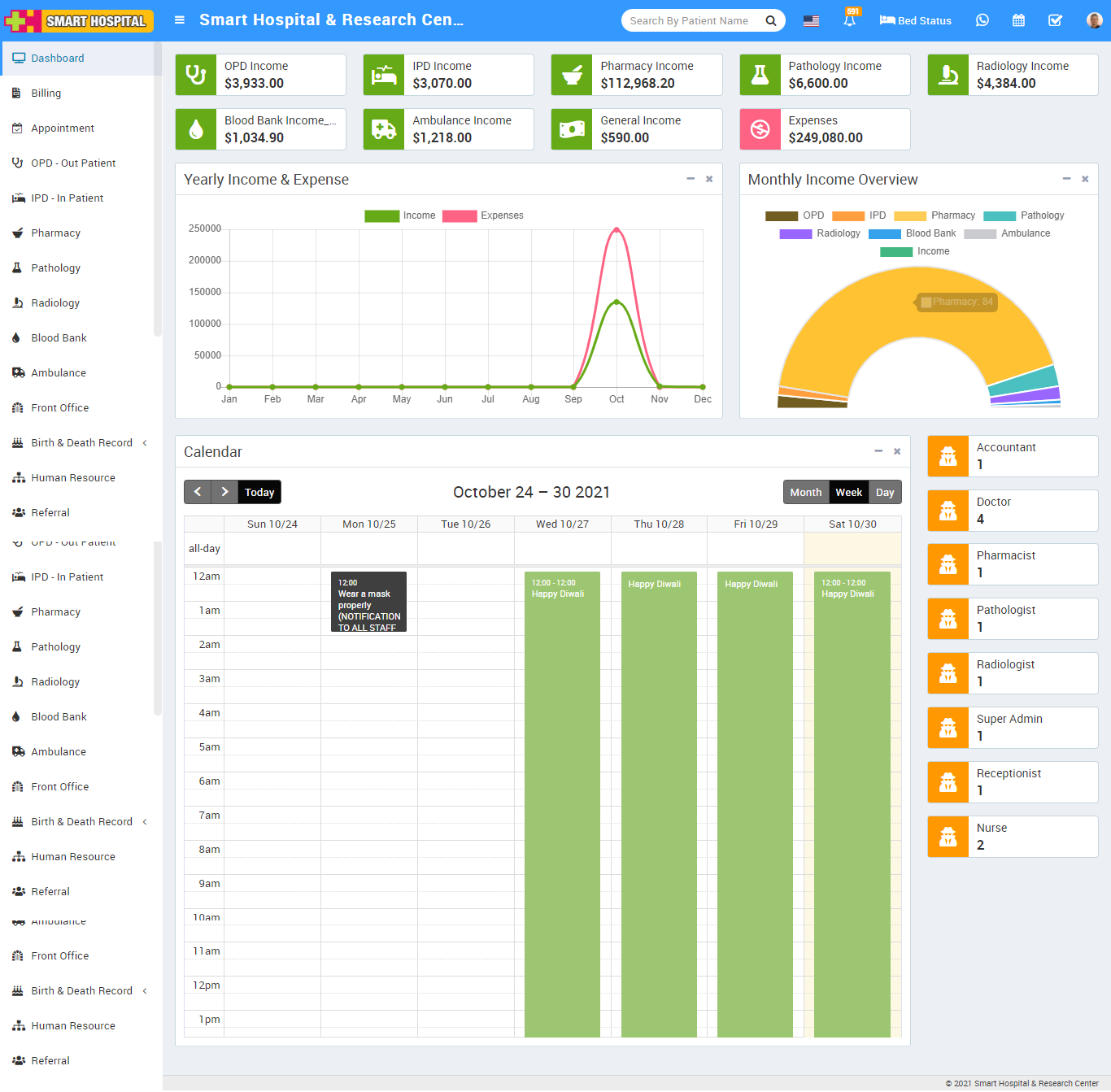
Hospital Management Software
Introducing our cutting-edge web-based Hospital Management Software: an innovative solution designed to streamline every aspect of healthcare administration. Seamlessly integrating into your hospital's workflow, this intuitive platform revolutionizes the way you manage patient records, appointments, billing, and more.
With our software, you can effortlessly schedule appointments, allocate resources, and manage staff with precision. Real-time updates ensure that your team stays informed and coordinated, reducing errors and maximizing efficiency.
Experience the power of centralized data management, where patient records are securely stored and easily accessible from anywhere with an internet connection. Our software prioritizes data security, ensuring compliance with industry regulations and safeguarding sensitive information.
Empower your hospital with advanced analytics and reporting features, providing valuable insights into operational performance, resource utilization, and patient outcomes. Make informed decisions and drive continuous improvement with actionable data at your fingertips.
From enhancing patient care to optimizing administrative processes, our web-based Hospital Management Software is the comprehensive solution your healthcare facility needs to thrive in today's dynamic environment. Welcome to the future of healthcare administration.
Basic Features:
Patient Registration: Capture and store basic patient information such as name, contact details, and medical history.
Appointment Scheduling: Allow patients to schedule appointments with doctors or specialists based on availability.
Doctor's Portal: Provide doctors with access to patient records, appointment schedules, and treatment plans.
Billing and Invoicing: Generate invoices for services rendered, including consultation fees, tests, and procedures.
Pharmacy Management: Manage inventory, issue prescriptions, and track medication dispensation.
Laboratory Management: Record and track lab test requests, results, and reports.
Patient Records Management: Maintain electronic health records (EHR) containing patient demographics, medical history, diagnoses, and treatment plans.
Administrative Tools: Streamline administrative tasks such as staff management, payroll processing, and inventory control.
Advanced Features:
Electronic Medical Records (EMR): Enable comprehensive documentation of patient encounters, including clinical notes, test results, and treatment progress.
Telemedicine Integration: Facilitate remote consultations and telehealth services for patients unable to visit the hospital in person.
Decision Support Systems: Provide clinical decision support through alerts, reminders, and recommendations based on patient data and best practices.
Mobile App Support: Extend system functionality to mobile devices, allowing patients to access their health records, schedule appointments, and communicate with healthcare providers on the go.
Data Analytics and Reporting: Utilize advanced analytics tools to analyze healthcare trends, track key performance indicators, and generate custom reports for stakeholders.
Interoperability: Integrate with external systems such as insurance providers, government health agencies, and other healthcare facilities to facilitate data exchange and collaboration.
Patient Portal: Empower patients to manage their health information, view test results, request prescription refills, and communicate securely with healthcare providers online.
AI-driven Solutions: Implement artificial intelligence (AI) algorithms for tasks such as medical imaging analysis, predictive analytics, and personalized treatment recommendations.

